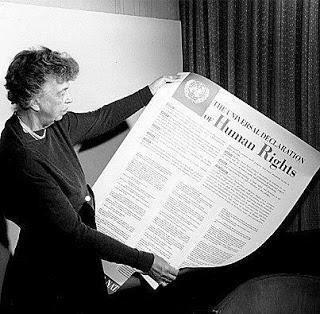
Jill Filipovic and Nancy Cohen remember what happened as Roe v. Wade came down pretty much as I remember it. Both point out that, at the time the Supreme Court handed down its Roe v. Wade ruling, a majority of Americans including Republicans favored the ruling, and it was only post factum that social conservatives began to use Roe v. Wade and the abortion issue as "an opening to exploit for political gain," as Filipovic puts it. As Filipovic notes,
"New Right" leaders sought to bring Catholics and [sic] into the party and politicize Evangelicals to form a coalition of traditionalists based on hostility to progress and change.
Abortion was hardly their only issue. The new conservative coalition opposed the Equal Rights Amendment, claiming that gender equality would destroy the family and send our daughters to war. They stoked white voters’ fears of full racial integration with racist tropes about black criminals and welfare queens. Those narratives and appeals to tradition continue today, with social conservatives hoping for a return to a gauzy vision of Good Old Days America before the social upheavals of the 1960s and ’70s—and before women, people of color, religious minorities and other marginalized groups were able to secure a full range of rights.
And as Cohen states,
At the time the Court heard Roe, 64% of Americans supported abortion decriminalization. State-by-state abortion law reform had already stalled, thanks largely to lobbying by the Catholic Church. Yet Roe did not spark a spontaneous rightwing backlash. As I detail in my book Delirium: The Politics of Sex in America, it was the Equal Rights Amendment and other issues surrounding women's equality, not Roe v Wade, that mobilized fundamentalists into rightwing politics and the GOP.
In short, Roe v Wade did not catalyze the "culture war" or cause America's political polarization. The decision retains broad popular support.
As someone who lived through the Roe v. Wade ruling and remembers clearly what was happening politically in the U.S. at the time, these two summaries of how the abortion issue got politicized (and lumped together with other issues instrumentally useful to the political right) by what Filipovic calls the "new right" are accurate. I was, in fact, teaching in a Catholic elementary school when Roe came down, and I remember vividly the strong resistance of most of my fellow teachers in that school, all women, to the attempt of the archdiocese of New Orleans to convince them that they should get up in arms about Roe v. Wade. These conservative Catholic women were happy that the Supreme Court handed down this decision.
And so I agree wholeheartedly with Cohen when she observes,
The lesson many have drawn from the false Roe backlash narrative is that contested social issues should be kept out of the courts. But the relentless effort to chip away at the right to legal abortion over the last 30 years proves exactly the opposite of what Roe's detractors claim. A small minority of anti-abortion activists, through savvy lobbying and political organizing, has been able to sway state lawmakers to adopt unpopular laws that infringe on individual liberty. Those who say let legislatures do their work, should consider that only 9% of Americans favor laws such as North Dakota and Arkansas have recently enacted.
Just as I also agree with Filipovic when she writes,
A different ruling in Roe—or none at all—wouldn’t have prevented a Republican Party realignment that was already underway. It wouldn’t have prevented abortion, and the rights of women and other traditionally disempowered groups, from becoming controversial political issues. But a Roe-free United States would almost certainly mean a United States wherein abortion laws were wildly varied, with women in many parts of the country having no legal right to abortion at all. Similarly, even though Brown v. Board of Education inspired an immediate backlash from Southern racists, it’s tough to argue that without court intervention, racial integration of public schools and other facilities would be better without Brown than the (admittedly lacking) state of racial equality today.
Filipovic and Cohen are rehashing the history of Roe v. Wade's politicization, of course, to deal with the claim of many American centrists right now that a Supreme Court ruling that would validate marriage equality throughout the U.S. would produce needless and harmful social turmoil by precipitously ending a national debate about a divisive issue regarding which Americans still do not agree. As both note, using Roe v. Wade to make this point is fallacious, when the Court did not create a majority consensus about the legality of abortion, but echoed that consensus.
Nor, if the Court validated nationwide marriage equality, would it be creating a majority consensus in this case, either. That consensus already exists, and it is growing by leaps and bounds and will in all likelihood continue to grow.
This is not to say that backlash would not set in if the Supremes did choose to validate marriage equality across the land. If what happened with Roe v. Wade proves anything at all, it illustrates that the political right will adroitly use and will continue to use any and all issues that appear to be instrumentally useful wedge issues to divide the nation and pursue right-wing goals.
But as Filipovic rightly notes, as Brown v. Board of Education equally illustrates, without intervention at the federal level to protect the rights of minorities that have historically been denied rights, those rights will continue to be rejected by groups intent on discriminating. And since when has it been decreed that the human rights of targeted groups should depend on popular referenda, in any case?

